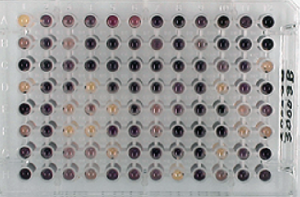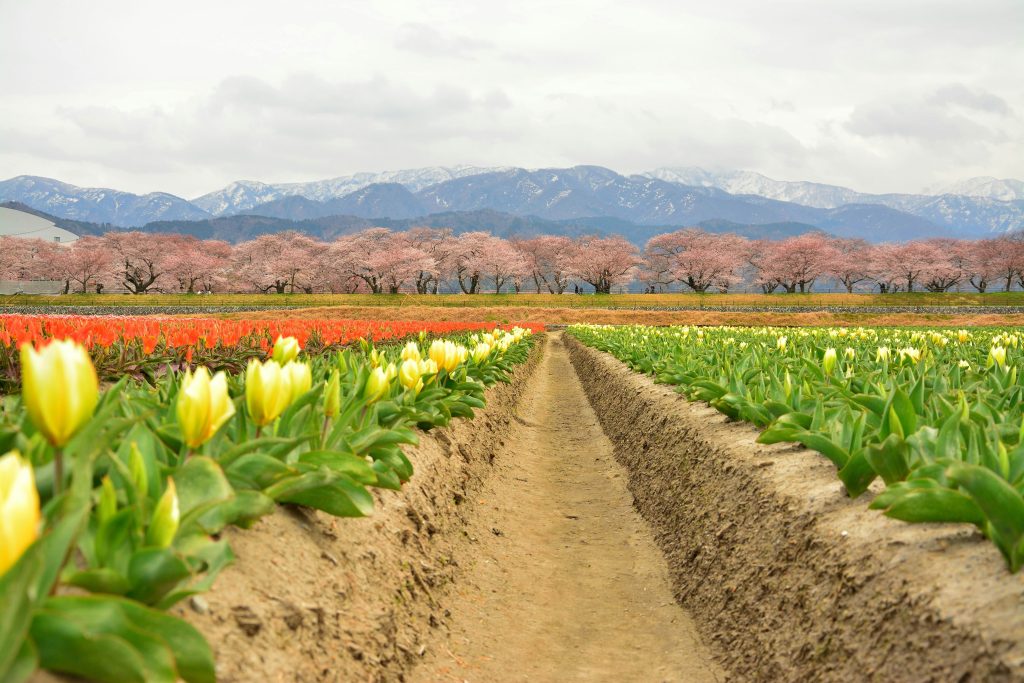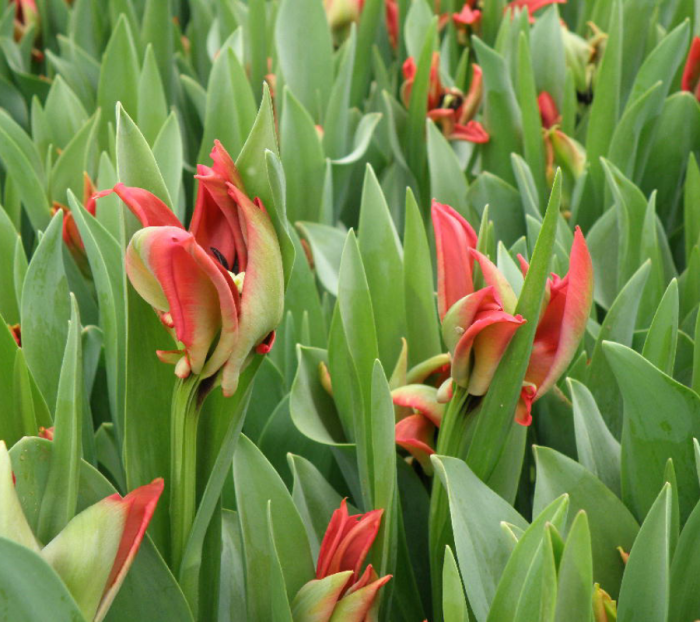Interview from 2010
Niigata – Mr. Iichi Ohara
Mr Iichi Ohara cultivates rice, tulips, and lilies in Tsubame City, Niigata Prefecture. Additionally, he serves as a member of the city council. The Microbial Performance Index of Mr. Ohara’s soil is an impressive 1 million or more for all crops. We asked about his secrets for maintaining active and fertile soil.
Q. What was your first impression when you heard about BIOTREX analysis?
The average Microbial Performance Index for Japanese soils is about 600,000. However, I was surprised to find that all of my fields exceeded a million. The Tulip House had a score of 1,445,322, the Yuri House had a score of 1,169,882, and the paddy field cultivated with 100% organic fertilizer had a score of 1,093,826.
Furthermore, I was heartened by the praise and kind words from Mr. Kazunari Yokoyama, the head of the Production Support System Research Team at the Central Agricultural Research Center. He commended my soil management practices, describing them as “perfect soil preparation that ranks within the top 5% nationwide.” I was relieved that I was not wrong. If you can maintain healthy soil and produce healthy crops, the people who eat them will also be healthy. I felt rewarded for following the wisdom of my predecessors in creating healthy soil.
We also received a Soil Mark sticker as proof that we produce soil rich in microorganisms, which we immediately put on our rice bags. I think the BIOTREX analysis is worth investigating by farmers all over the country.

A plate with BIOTREX analysis results of Mr. Ohara’s tulip field. The soil microbes are very active – many wells have a dark colour.
Q. Tulip House achieved a very high score. Did you do anything special?
To be honest, I was surprised by the high score. I did not expect it. I was thinking, ‘If it’s slightly above average, that’s good, but what if it’s below average?’
For someone like me who has observed examples of people disrupting the soil with cut flowers like tulips and lilies, gradual and deliberate soil preparation is my motto. In a 20-acre greenhouse, we plant 30,000 tulip bulbs, but those who disturb the soil achieve a flower harvest rate (shipping rate) of only 50%. Recently, our household has maintained a rate of over 90%.
Low prices drive the market, making the flower collection rate crucial for business survival. Therefore, caution is necessary. I have seen many people fail by taking risks with soil preparation. I have witnessed the consequences of being forced to withdraw from cut flowers due to the cost of bulbs, leaving only debt.


Q. How about paddy fields?
The paddy fields have kept their promise to the customers to “produce more delicious rice next year than this year” and have worked hard with the encouragement of the customers. In the beginning (1987), we asked our customers, “Right now we can only deliver bad rice, but please trust us and buy it in 5 or 10 years”. For the paddy fields, I took up the challenge, thinking that the only thing I could do was to refrain from adventurous things and building the soil steadily.
Nevertheless, during the first 2 to 3 years, I believe I delivered Koshihikari rice with a taste that even I couldn’t fully endorse because I had added too much organic matter. Now I think I have become a normal person with organic farming. It’s a natural opponent every year, so there’s still a lot to think about. I think a lot of people will rush into farming if they can make money from such interesting farming, but the reality is not so easy. Based on this result, I would like to make further efforts to improve the taste of rice and the longevity of flowers.
Q. Lastly, please tell us about your thoughts on agriculture.
As a member of the city council, I am blessed with the opportunity to look at agriculture from a different perspective than ordinary farmers, and I feel the goodness of agriculture in my own way. In the non-agricultural industry, 100 yen of capital is worth 100 million yen. Even in such a situation, agriculture is an industry that has never ceased in recorded history.
We can only establish this foundation by consistently earning the trust of our customers. Agriculture is a prime example of such a business. However, with prices fluctuating so much, agriculture is now confronting a harsh reality.
Despite the current situation, I am confident in continuing my farming activities, as I believe the world is starting to appreciate the dedication of Japanese farmers. I urge the government to facilitate an environment that enables us to conduct business with the rest of the world. The statement made by the young politician, “It’s great that farmers can now receive JPY15,000 per 10 a,” prompts me to express my concern about how this could potentially harm agriculture. I believe that it is the duty of politics to prioritize the high quality and safety of Japanese agricultural products and create an environment that enables them to enter the global market.

